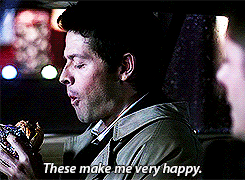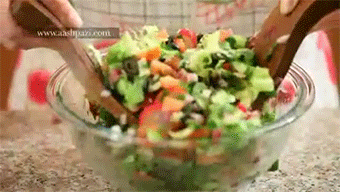Within the walls of Fanning, down a big corridor that students seem to skip by on their way to class is where the Connecticut College’s Dean of Faculty office situates itself. An average Conn student might never suspect that this year’s Associate Dean of Faculty is in fact an avid foodie. But why shouldn’t he be? “Food is history among other things,” says Dean Jeffrey Cole, Professor of Anthropology. Having spent time conducting research in Sicily, Italy, Dean Cole was inspired by Italian food culture, and from then on, decided to make food a part of his everyday job.
Spoon: So, of course we have to ask: What is one of your favorite foods and why?
JC: So, for me I guess it would be a toss-up between a really awesome bowl of ramen or a really good hamburger. I like the idea of a cheeseburger in particular because you’re combining some really great culinary inventions in whats seemingly simple food.
If you go with the bun, that is made with grain that has been cultivated and changed over the millennia. The cheese is coming from milk that people figured out they could ferment – another awesome food invention. The burger is coming from cattle, which were, like the grains, domesticated and when managed correctly, really build up soil health … And we haven’t even gotten to the fries yet.

Gif courtesy of giphy.com
Spoon: We’re all wondering — why food? What inspired your teaching and research?
JC: My early research was conducted in Sicily, in southern Italy. It’s impossible to live in Italy and not become interested in food. Because of the quality and depth of food culture, food is just so very significant.
In the late 90’s, my wife and I ended up writing a book called “Dirty Work”, and one of the case studies in the book examined the life and times of migrant workers in the greenhouse district of southeast Sicily.
I’d say that was when food truly entered my scholarly focus. That book came out about the year that I came to Conn, and one of my aspirations in looking for a new research project was to do something that involved food locally, and to potentially involve students in the research project.
Spoon: Since you’ve been at Conn, what is your experience with the dining halls?
JC: I’ve had a lot of really good experiences in the dining halls. Of course, part of that is the great company that my students provide. My standard is always a veggie burger and salad and I’ve always found those to be tasty. I do know a lot of people who work there and I know they’ve made concerted and quite successful efforts to improve the quality of the food over the past few years, and they’ve done so on a flat budget.
Spoon: Best dining experience you’ve had on campus?
JC: That’s pretty easy. In December of 2013, students in the Cultivating Change class cooked a feast on campus. Our purpose was to celebrate all the farmers who had participated in our study of beginning farmers over the two years, and we had a good 20-30 people at the feast.
It was really meaningful to me for a couple of reasons. First, the students made it, and they jumped at the opportunity to make the food because they felt a strong connection to those farmers.
Second, the farmers were touched that the students had devoted so much time and effort.
Thirdly, the food was absolutely scrumptious – we had some really great cooks in that class, and it was a mostly vegetarian meal. It was very tasty.

Gif courtesy of giphy.com
Spoon: Any advice to those who want to incorporate food into future jobs?
JC: Last spring GNCE held a conference on the future of food. One of the panels focused on careers in food. It brought in people who work food into their careers in different ways. Each panelist talked about their personal trajectories, and where they saw potential for people to make a difference.
One of the areas that was brought up and widely agreed by the panelists to be significant was the distribution side of things. A lot of what we would call the sustainable farmers have a hard time reaching potential consumers because it takes time to go to a farmers market and it’s expensive to use certain kind of facilities, and so on.
While there is some change afoot, a lot of the distribution out there is more traditional. One of the panelists had just taken a job with a big food distribution company, precisely with the intent of changing from within by for example seeking out farmers who had higher prices but who also had higher standards for the treatment of animals, land and labor. That’s an example. Another place is changing food systems within institutions, like colleges.
Beginning farmers are the focus of Dean Cole’s new research. “Basically, a significant percentage of land is going to become available in the next 20-30 years. In addition, the average age of farmers in the US is now about 60, and when you put those two things together, who is going to farm, how are they going to farm, and how are they going to relate to the land and their fellow residents?” So, Conn Foodies, that leaves us with one question. How will you all contribute to the future of food?

Gif courtesy of giphy.com




